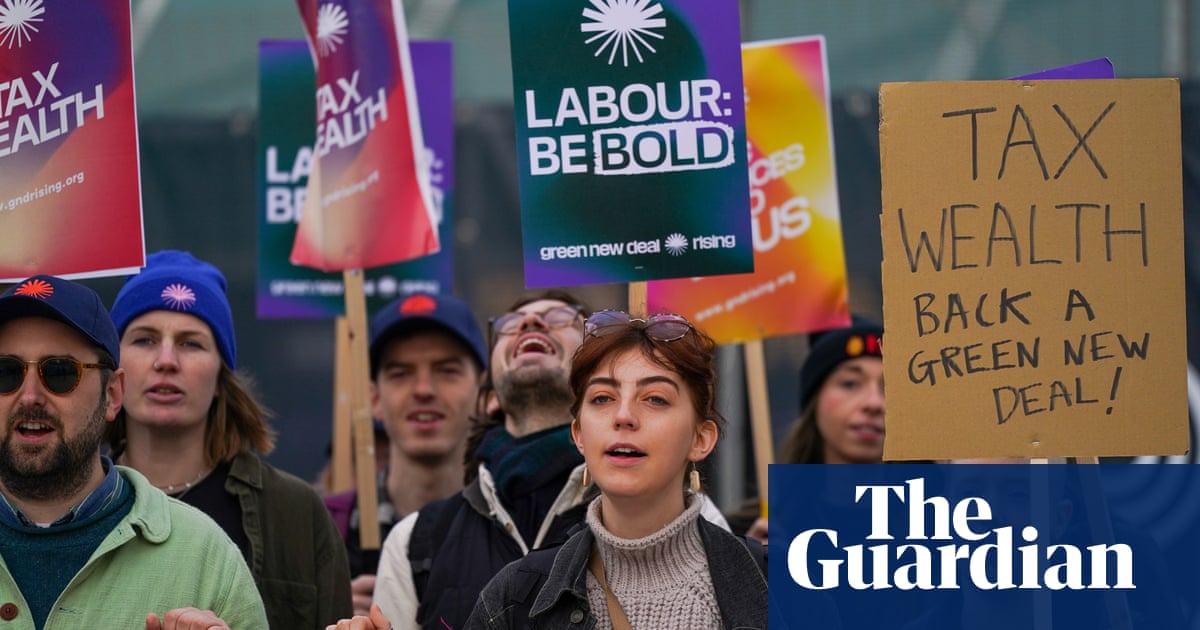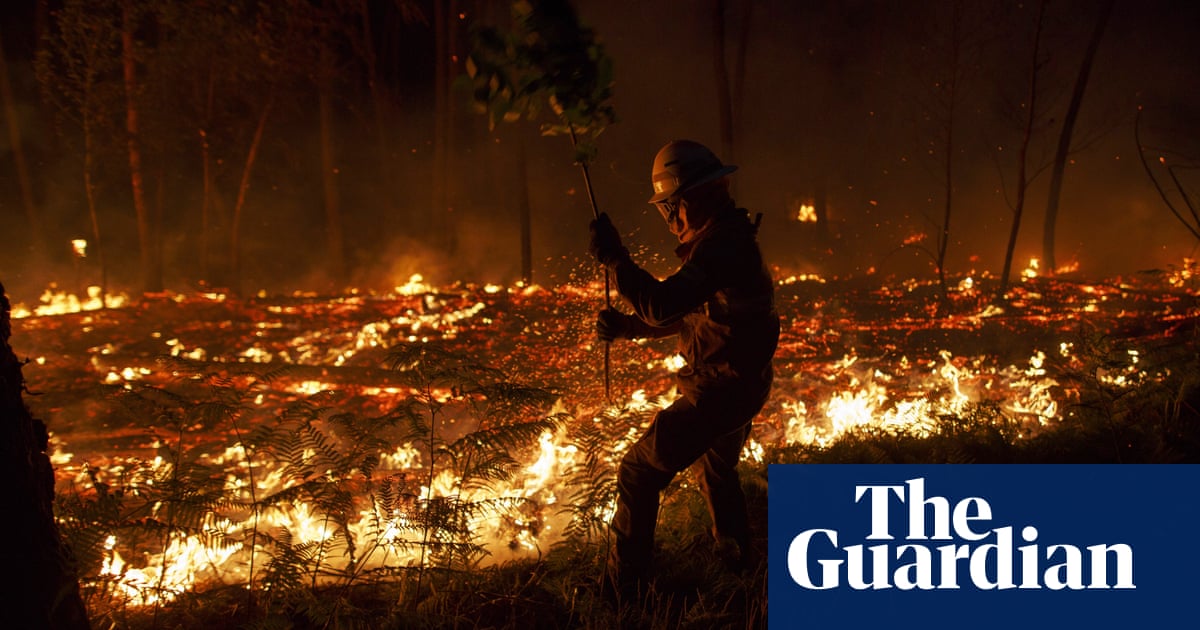
Climate experts and campaigners have given a cautious welcome to Labour’s proposals to tackle the escalating ecological crisis but urged the party not to back away from a broader “green new deal” agenda to ensure a rapid and fair transition to a low-carbon economy.
During its party conference in Brighton, Labour set out measures including an annual £28bn green investment fund, a mass retrofitting programme, a pledge to decarbonise steel and a “net zero and nature test” for every policy.
The headline plans echoed many of Labour’s initiatives for a green industrial revolution that were set out in detail at the last election. Many experts applauded the scale of the proposals, describing them as “a good first step” to ensure the UK meets its climate targets.
Ed Miliband, the shadow business secretary, has been leading Labour’s push on climate and in his speech to conference promised it would be the party of “climate justice and economic justice together”.
However, some campaigners said the Labour leader, Keir Starmer, needed to explicitly back a “transformational green new deal” – including the nationalisation of key industries, which he ruled out this week – to ensure the transition to a low-carbon economy was conducted at sufficient speed and scale to tackle the climate crisis and, crucially, improve the lives of ordinary people through better jobs, improved housing and public health.
On Friday it was reported that allies of Starmer were pushing him to demote Miliband, with one party source telling the Times the shadow business secretary was “veering away from his brief in a strange way”.
Labour said there were no current plans for a reshuffle, and any move against Miliband – a well-respected environment secretary in the last Labour government and former party leader – would be met with dismay by climate experts and many party members. It would also dent Labour’s credentials before Cop26, the international climate summit in Glasgow in November.
Climate experts welcomed the party’s plans on Friday. Sam Alvis, the head of green renewal at the Green Alliance thinktank, which last month calculated the government needed to spend an extra £22bn a year to meet the UK’s climate goals, said: “This is a big increase in ambition that would go a long way in getting to net zero carbon emissions and restoring nature … [it] puts pressure on chancellor Rishi Sunak to follow suit with a similar programme in the spending review.”
Simon Cran-McGreehin, the head of analysis at the Energy and Climate Intelligence Unit, said it would be important to see the details behind the headlines, but added the plans were broadly in line with those set out by the government’s own advisers on the Climate Change Committee.
“The overall figure of £28bn is in the right sort of area to ramp us up to where we need to be between now and 2030 … it is a good first step.”
Rebecca Newsom, the head of politics at Greenpeace UK, also welcomed the policies, saying it was clear “that tackling the climate crisis and supporting a fair transition” was central to Labour’s agenda.
But she said “big questions” remained around the “speed and nature of the transition” under any future Labour government and the party’s readiness to show “real leadership in guiding a just transition away from dirty, expensive and unreliable technologies like oil, gas and nuclear”.
Climate and social justice activists inside and outside the party said that, although the policies did not go far enough, they highlighted the power of their campaigning over the past two years – from school strikes to Green New Deal Rising, Extinction Rebellion to Labour for a Green New Deal – and vowed to continue to push the party to go further.
Hannah Martin from Green New Deal Rising, the youth climate movement that challenged Starmer over his climate commitments during conference, said the spending commitment “only happened because of the activism of young people”.
“While it’s a good first step towards the level of investment we need, we still have a leader of the opposition who is running away from young people and won’t talk to us about this crisis.”
Martin said her generation had faced multiple crises, including recessions, pandemics, climate breakdown and rising poverty.
She added: “We know that only a wide-reaching green new deal at the speed and scale required where we transform our financial systems and put power back into the hands of communities is going to work and we need leaders who have the courage to fight for it.”
Kate Hicks, from the grassroots campaign group Labour for a Green New Deal, said the party had taken a “big step back from 2019”.
“Labour should be the party of green jobs, but Starmer has ditched the policy he needs to achieve it: public ownership. Without it, we can’t wind down polluting industries at the pace that’s needed, and we can’t make sure that workers are retrained for quality, well-paid jobs.”
Delegates at the Labour conference overwhelmingly backed a motion calling for the party to adopt a series of radical climate policies including the nationalisation of the energy sector, the creation of a “national nature service”, “a government programme creating millions of well-paid, unionised green jobs with publicly owned entities” and “mass investment in green technologies and renewables”.
Hicks said this showed there was still “a huge and growing wave of grassroots support behind a transformative green new deal”.
“Some, like Ed Miliband, appear to recognise this, and we urge the rest of the leadership to follow his lead,” she added.












